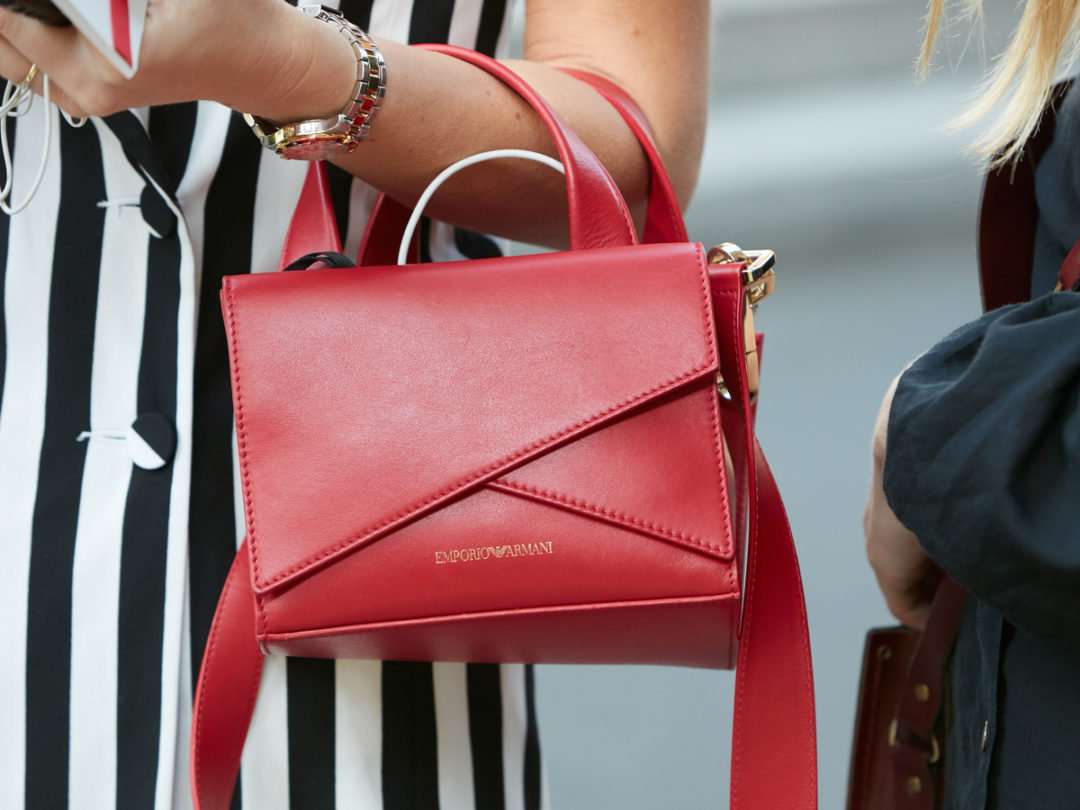
The profit margin for luxury goods is usually far higher than that for lower-priced items. So why not give back some of that money to a good cause – specifically, the education of young girls?
In 2016, Stacey Boyd was visiting refugee camps in Kenya and Rwanda with Malala Yousafzai, the Pakistani activist and Nobel Price laureate. Boyd was an entrepreneur who had founded Schoola, an online shop for second-hand clothes that raises money for educational programs in the U.S. Reaching into her designer bag to take a photo of the refugee girls, Boyd realized that the price of the bag alone could go a long way toward sending some of those girls to school. That’s when the idea for Olivela was born.
Olivela is a site for the sale of luxury goods that donates 20 percent of the net proceeds from every purchase to funding education for girls around the world. Launched by Boyd in 2017, it has expanded from an initial 12 brands to nearly 300.
There weren’t many models on which to build the company, says Kelly Murphy, director of marketing and causes with Olivela. A number of brands have a strong component of social responsibility, but there were none in the luxury space that assign a fixed portion of income to good causes.
Nor were there initiatives providing buyers with complete transparency of their contributions. Purchasers of goods on the Olivela site can see the full impact of their actions on #TheOlivelaEffect dashboard.
Even with the typically high price point of luxury items such as shoes, handbags, jewelry and accessories, funneling 20 percent of income to charity can put a big dent in merchandisers’ profitability. Murphy says Olivela didn’t necessarily have a specific number in mind from the start. (Schoola diverts 40 percent of proceeds to education.) “Our CEO and team did the math, and felt that 20 percent was what we could do to make it sustainable for the long term,” she says.
Selecting the right brands for the site was a challenge for both Olivela and the sellers. At the time of launch, “no one knew who we were,” recalls Murphy. Boyd and chief merchant Kristen Sosa personally visited with representatives of top brands to make their case.
“We felt we were a good fit for the philanthropic-minded customer,” Murphy says. At the same time, Olivela had to be sure that the brands with which it chose to partner were truly committed to the company’s socially responsible business model.
Major brands began to approach Olivela as it grew. “We’re still mindful of making sure that the brands are the right fit for the right customers,” Murphy says. Today, visitors to the Olivela site can choose from among some of the luxury sector’s biggest names, including Ralph Lauren, Emporio Armani, Marc Jacobs, Roberto Cavalli, Stella McCartney and Valentino.
Many of the items offered on site are sold on consignment, although Olivela works with each brand individually “to figure out which model works the best,” Murphy says. Often that requires Olivela to accept a slimmer margin. Seasonal sales also cut into profits. But the 20-percent share for girls’ education remains constant.
Murphy says transparency was built into the Olivela model from the start. “We want to be very clear about the direct benefit that every purchase has,” she says. For example, the purchase of a handbag might pay for 33 days of schooling. Buyers receive regular updates on the girls that Olivela has chosen to support.
Olivela has already expanded beyond the internet. Last summer, it launched its first boutique, located in Nantucket, MA. “We wanted to get on the ground and introduce people to Olivela – showcase who we are and our cause partners,” Murphy says. The physical store allows for direct interaction between buyers and seller. Shoppers can view information on site about a particular product and the school that stands to benefit from its purchase. The number of days of funded schooling is displayed on an Instagram wall. The venture was such a success that Olivela opened a second boutique in Aspen, CO, in partnership with the Aspen Education Foundation.
The company is further broadening its range by piloting a platform dubbed Olivela X, which allows buyers to create pages for their favorite charities. And it has joined with CARE to target young girls at risk of becoming child brides, and steer them to educational opportunities instead.
Whether the charitable model works equally well with lower-priced goods is an open question. Many goods can’t sustain a 20-percent contribution and remain profitable. Still, says Murphy, Olivela “is always looking to expand the assortment, and take it to the next level.”
She’s convinced that the idea of sustainable and charitable purchasing can scale. “People want to have the power of choice,” she says, “and they’re going to shop where they’re having the most impact. As a society, we’re continuing to trend in that direction, and we’re just excited to be a part of it.”
Next: The role of blockchain in managing the luxury goods supply chain.







